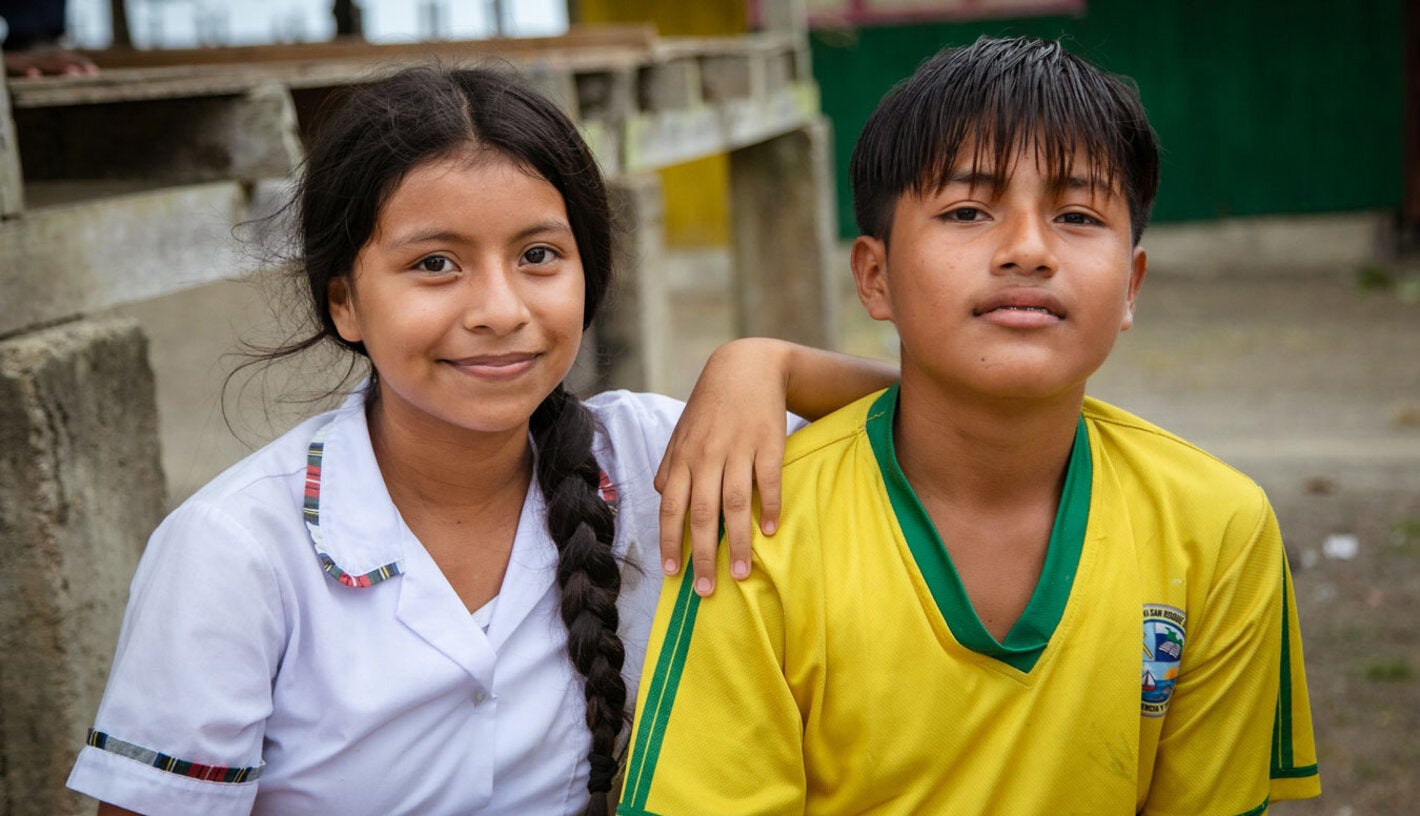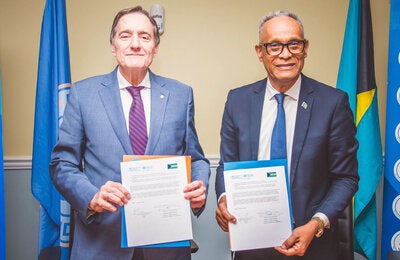
Washington, D.C., 26 September 2023 (PAHO)—Ministers and high-level health authorities in the Region of the Americas today agreed to promote a series of interventions targeted at children, adolescents, and young adults aimed at preventing the development of noncommunicable diseases (NCDs), which are the leading causes of ill health, disability, and death in the Region.
The Policy on Prevention and Control of Noncommunicable Diseases in Children, Adolescents, and Young Adults, adopted today by the 60th Directing Council of the Pan American Health Organization (PAHO), seeks to address cardiovascular diseases, diabetes, cancer, and chronic respiratory diseases, which account for 81% of all deaths each year in the Americas.
"While young people under the age of 24 can have NCDs—particularly type 1 diabetes, asthma, and certain cancers—efforts to address these conditions have focused on adults," Dr. Anselm Hennis, Director of PAHO's Department of Noncommunicable Diseases and Mental Health said. "It is crucial to promote interventions at this stage of life because this is when the risks begin, including tobacco and alcohol use, unhealthy eating, and physical inactivity."
In the Americas, just over 14% of the child and adolescent population was obese in 2016 (latest available data), while 80.7% of adolescents did not get enough physical activity. In 2019, 11.3% of 13- to 15-year-olds in the Region (5.2 million) used tobacco, while 18.5% of adolescents engaged in binge drinking in 2016.
An estimated 314,000 people under age 20 have type 1 diabetes (30% more than in 1990) and every year 45,000 children and adolescents under 20 are diagnosed with some type of cancer. Survival rates vary widely across countries, depending on timely access to diagnosis and quality treatment.
The new policy notes that NCD prevention requires multisectoral public policies, as well as interventions such as exclusive breastfeeding in the first six months of life (which only one in three babies in the Region currently receive), followed by optimal nutrition in childhood and adolescence.
Other cost-effective and evidence-based interventions recommended in the new policy to address NCDs in children, adolescents, and young adults include:
- Vaccinate against human papillomavirus (HPV) to prevent cervical cancer in adulthood
- Offer screening for anemia, asthma, and diabetes in maternal and child health programs
- Provide information and support on tobacco prevention and cessation, alcohol and psychoactive substance use, physical activity, and nutrition
- Provide health education through schools, camps, and community activities
- Establish smoke-free school environments that offer foods that are low in fat, sugar, and salt; and encourage physical activity
- Implement municipal regulations that create healthy food environments, green spaces, and means of transport that facilitate walking and cycling
- Establish appropriate health services to ensure timely diagnosis, treatment, and follow-up of NCDs in the target population
PAHO will provide technical cooperation to the countries of the Region in order to strengthen their capacities, thereby contributing to the implementation of the policy and the achievement of its strategic lines of action. PAHO will also support implementation of the "best buys" (cost-effective interventions) recommended by the World Health Organization (WHO) to prevent and control noncommunicable diseases, among other actions.



